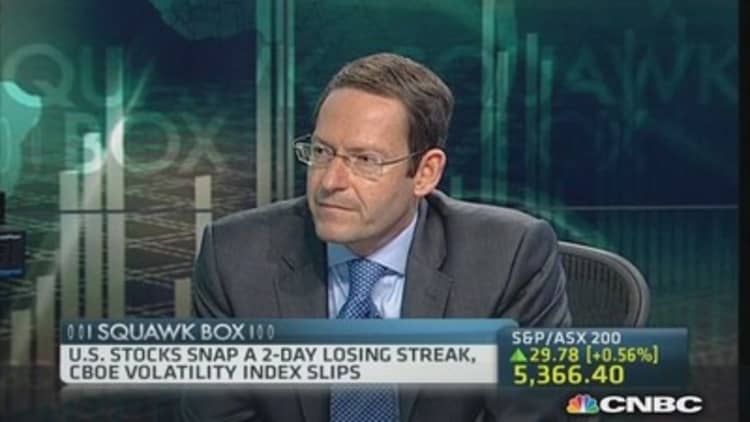BlackRock Chief Executive Laurence Fink has warned top U.S. companies not to emphasize dividends or share buybacks if they come at the expense of future growth.
Many top corporations have faced pressure from Wall Street analysts, activist investors and others to increase their dividends, buy back shares or take other steps to return capital to investors sooner rather than later.
Fink, in a March 21 letter to the leaders of companies in the S&P 500, acknowledged the pressure for near-term performance but reminded companies that they must focus on the longer term. With $4.3 trillion under management at Dec. 31, BlackRock of New York wields much influence over the boards of top corporations.
(Read more: BlackRock pro:Bulls might need to take '2nd look')

"It concerns us that, in the wake of the financial crisis, many companies have shied away from investing in the future growth of their companies," he wrote in the letter, a copy of which was obtained by Reuters.
"Too many companies have cut capital expenditure and even increased debt to boost dividends and increase share buybacks," he added.
(Read more: US banks brace for second health check in a week)
"We certainly believe that returning cash to shareholders should be part of a balanced capital strategy; however, when done for the wrong reasons and at the expense of capital investment, it can jeopardize a company's ability to generate sustainable long-term returns," Fink wrote.
Fink's letter was first reported by The Wall Street Journal.
At midday Wednesday, activist investor Carl Icahn responded to Fink's letter with one of his own, saying investments were good but only if thought out properly.
The text of Icahn's letter:
We completely agree with Larry that companies should reinvest in their businesses if they have the capability to do so. But if the investments are poorly thought out – and even more importantly – not implemented correctly – it's extremely dangerous for the long term outlook of the company.
What is even more dangerous and concerning is that so many of our companies do not have CEO's that have the ability to make investments, let alone run the companies they are now charged with, in a manner that can make them competitive in world markets.
And that is why we currently have the unemployment problems and pension shortfalls that exist today.
Ironically, our large funds and index funds, unfortunately, with many exceptions, do not see that the clear and present danger is that there are no true elections, and therefore incompetent CEO's and indifferent Boards, cannot be replaced.
History has shown that the lack of accountability leads to corruption and the downfall of a hegemony.
We are somewhat heartened that large index funds, which hold so much power are beginning to take this threat more seriously and we hope this trend will continue.
-- Carl Icahn
CNBC's Scott Wapner contributed to this report.

